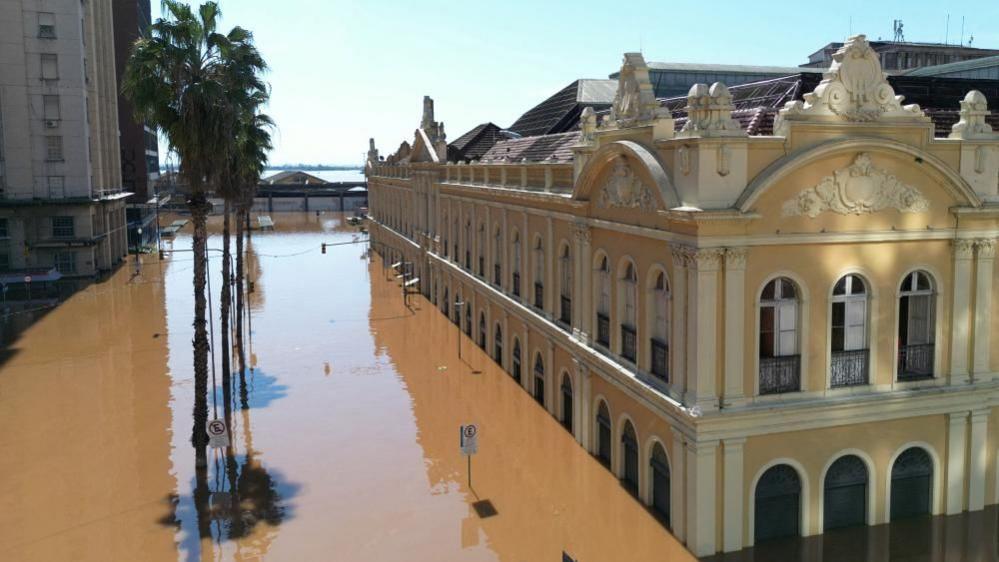River levels rise in flood-hit Brazilian state
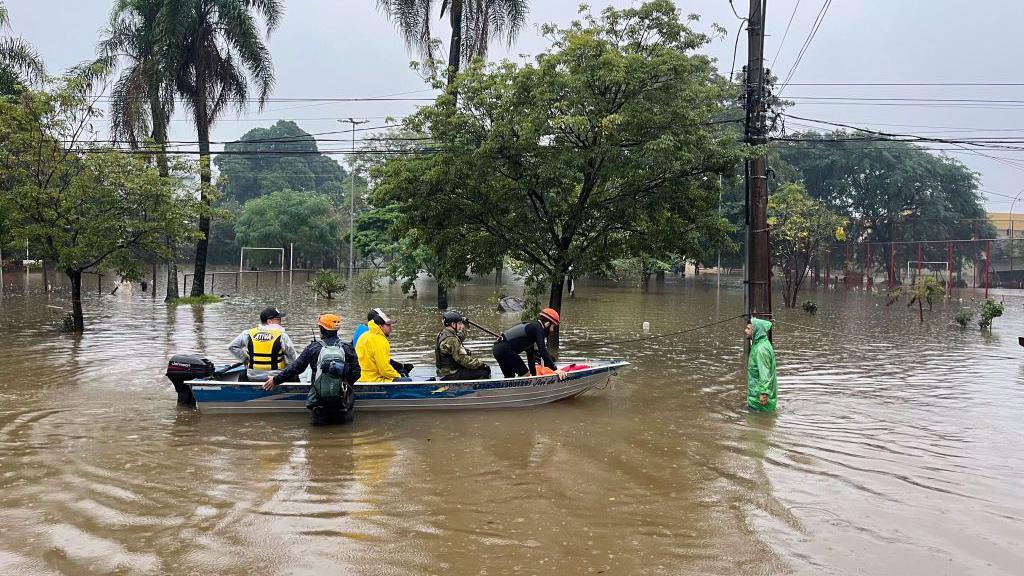
More than half a million have been displaced from their homes
- Published
River levels are on the rise again in the flood-stricken Brazilian state of Rio Grande do Sul after more heavy rains on the weekend.
The Taquari and Caí rivers have burst their banks and are causing fresh flooding in the interior of the state.
More than half a million people have been displaced from their homes and 147 are confirmed to have died in the floods.
Rescue workers continue to search for people who are missing.
The rise in the water levels of the Taquari and Caí is particularly worrying because the two rivers flow into the Guaíba, which has already caused severe flooding in the state capital, Porto Alegre.
Large parts of the city, which is home to 1.5m people, remain under water, with the historic centre particularly badly hit.
Soldiers have been patrolling flooded neighbourhoods in boats after reports of lootings.
Brazil's President, Luiz Inácio Lula da Silva, has delayed his planned visit to Chile to co-ordinate the government's response.
The president said that emergency funds would be made available to rebuild damaged infrastructure.
US President Joe Biden on Saturday said that his government had been in touch with his Brazilian counterpart to provide assistance.
Locally, residents who have access to boats have been helping rescue people stranded by the rising water.
Ivan Brizola told BBC News Brasil that he had rescued hundreds of people by kayak, even though he cannot swim.
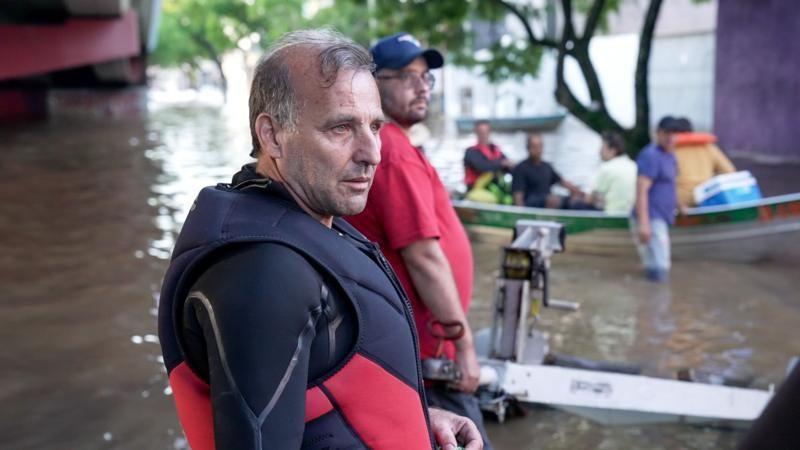
Mr Brizola is among those volunteering to help in Brazil's flood-stricken region
The 59-year-old from Porto Alegre said he had borrowed the kayak to help people in nearby Canoas "as the water started to flood their neighbourhoods".
He estimated that the water in the streets of Canoas was between eight to 10m (26-33ft) deep in places.
Together with other volunteers, Mr Brizola managed to ferry people from areas which were hard to access to bigger boats.
His son estimates that Mr Brizola has rescued more than 300 people and countless pets over the past week.
The flooding has been caused by torrential rains which started at the end of April.
Meteorologists say that the beginning of May has been the wettest that Porto Alegre has experienced in the past 63 years.
Researchers at ClimaMeter, who study weather extremes, have said that the cyclical rains this area is prone to have become more intense due to climate change.
The world has already warmed by about 1.1C since the industrial era began and temperatures will keep rising unless governments around the world make steep cuts to emissions.
More about the floods in Rio Grande do Sul
- Published11 May 2024
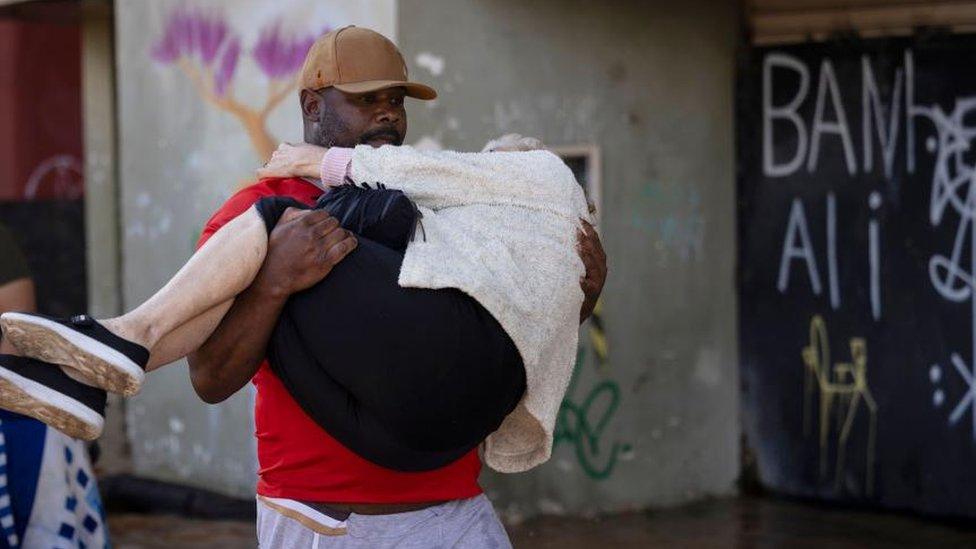
- Published9 May 2024
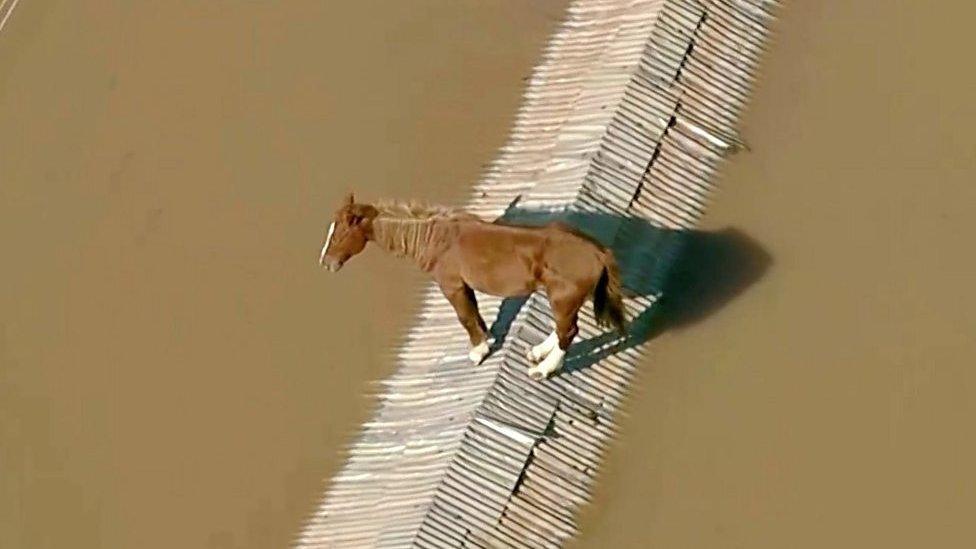
- Published8 May 2024
